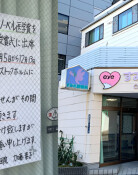Even "Short-term" Iraqi War Hit Hard Korean Economy
Even "Short-term" Iraqi War Hit Hard Korean Economy
Posted February. 26, 2003 22:39,
Hyundai Motor Company is worrying about the possible damaging impacts the war on Iraq may have on auto sale. For now, it is planning to produce more gasoline-efficient compact cars and diesel vehicles. Nonetheless, it takes it for granted that a higher gas price is likely to slow down its sales volume.
LG Chemical has already frozen its energy-related budget at the level for the fiscal year of 2002, and has come up with various contingency plans. For example, it will revamp work procedures that consume large volume of energy, and collect the remaining heat left at the end of work.
Chaebol are preparing for the worst. They believe that the outbreak of the Iraqi war could increase the oil price up to 40 something dollar per barrel. What they really worry most, however, is not the war itself. What`s bothering them is the possibility that the recession in the United States and other parts of the world might eat up the South Korean consumers` confidence and, thereby, pull its economy down into recession due to the shrinking consumption in and outside Korea.
▽ Even "short-term" war could be devastating = In a report titled "Impact of War on Iraq on South Korean Industries," which was released yesterday, the Korea Chamber of Commerce & Industry and Hyundai point out that once the war on Iraq breaks out, it may have a devastating impact on the Korean industries across the board, even if it ends soon. They also argue that an economic boost arising from the post-war demand could be materialized only in next year.
Export is likely to be put in the doldrums until late this year. With US consumers losing their confidence in economy, the demand for import in the Untied States has been plummeting. In the process, delay in payment, customs clearance and delivery will shrink South Korea`s exportation.
The report predicts that, once the war is over early this year, the South Korean economy will achieve a steep development in 2004 due to US economy`s recovery from recession, and the special demand arising after the war.
▽ Long time war expected to level off all industries = If the war spills into an all-out war and lasts long, the skyrocketing oil price will expectedly gnaw at the profitability of South Korean industries. If the oil price shoots up from $26 per barrel to $40, industries such as refinery, petrochemical and textile, which use oil or oil products for fuel or manufacturing of final products, will be hit hard due to the increased production cost. The refinery industry, for example, will watch its production cost rise by 19.2%, petrochemical industry 16.9%, and the textile industry 4.0%.
Especially, the situation will be worse for those industries that export more than 20% of products to the Untied States, such as telecommunication, semiconductor, auto, equipment, and textile. The steel and construction industries are also expected to face hardship from the worldwide recession, and lack of export to the Middle East region. The Samsung Economic Research Institute predicts that, if the war on Iraq lasts long and, thereby, the oil price goes up to $40 per barrel, the South Korean economy will develop less than 3%. On the other hand, the consumer price will rise up nearly by 5%, the trade deficit will amount to $1.5 billion.
Kang-Woon Lee kwoon90@donga.com
Headline News
- South Korea’s migrant population surpasses five percent
- U.S. acting ambassador affirms joint exercises with South Korea
- China and Japan escalate dispute over naval radar incident
- Uptempo claims D3 Seoul basketball championship convincingly
- Democratic Party pushes insurrection court despite opposition warnings







